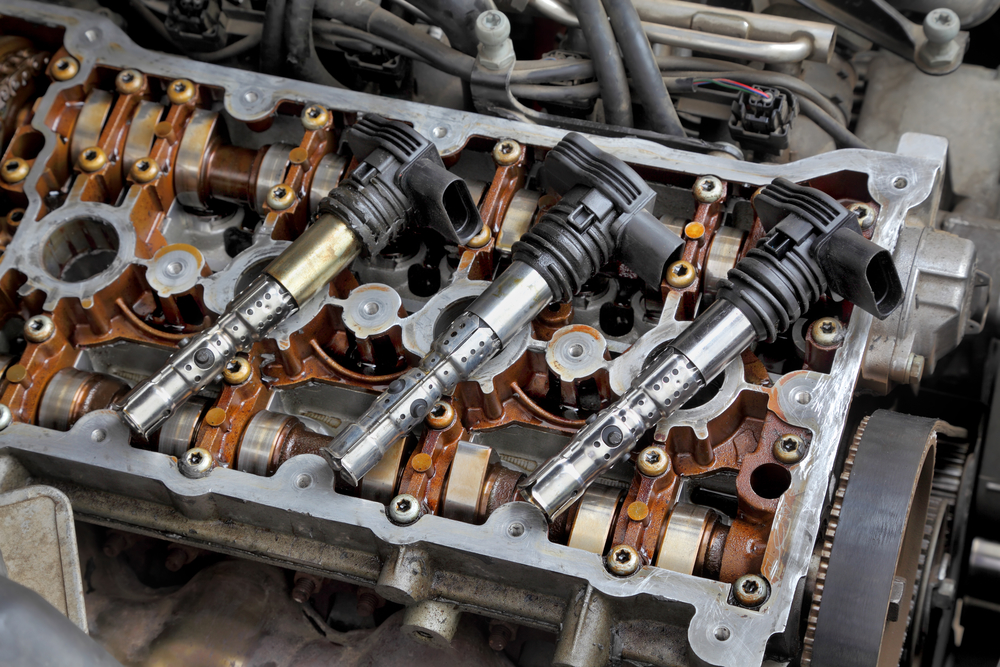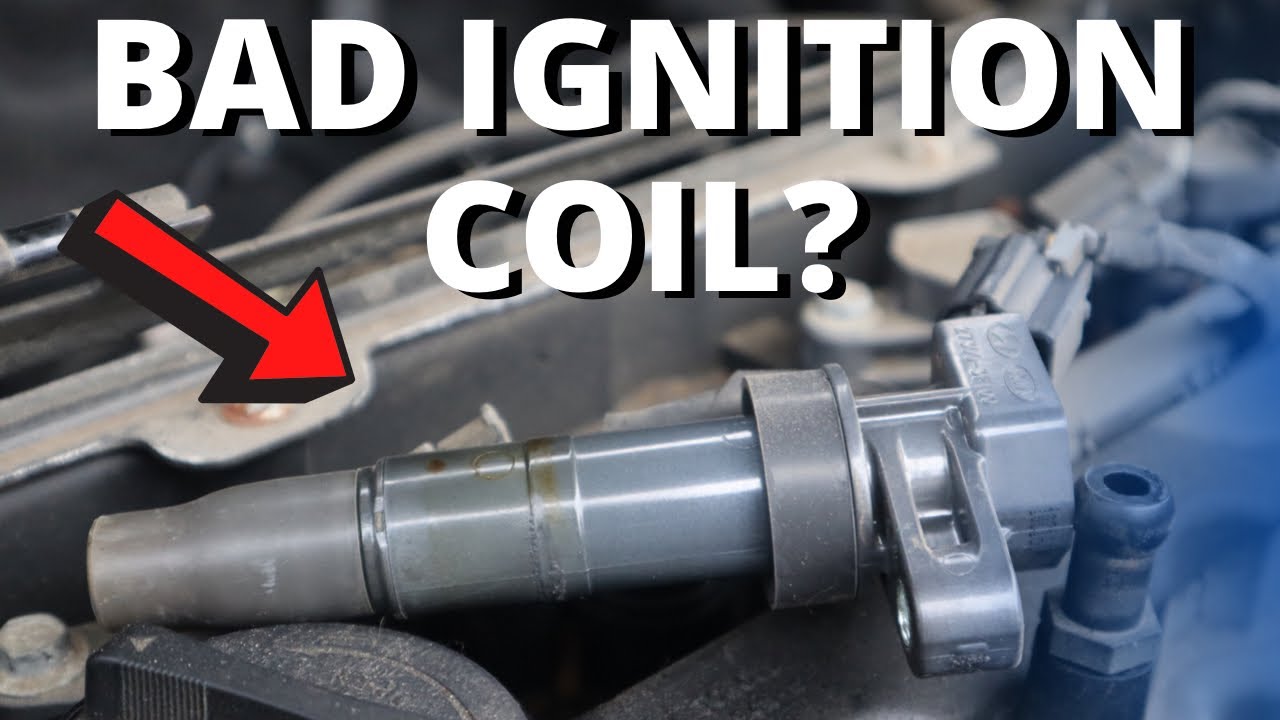Function of an ignition coil
The ignition coil is an extremely important component of the ignition system of vehicles with internal combustion engines. Its task is to generate the high voltage required to produce the ignition spark for the combustion engine. In general, the ignition coil design is identical for each vehicle. Inside are the coil with the primary winding, which is made of thicker copper wire, and the coil with the secondary winding, which is made of thinner copper wire and is significantly longer. Both coils wrap a laminated iron core. The wire of the coils is insulated so that the voltage cannot jump from the secondary winding to the primary winding, thus preventing short circuits. In the ignition coil, a high voltage of about 15,000 to about 30,000 volts is generated from the existing 12-volt voltage. This is further distributed to the spark plugs via the ignition leads and the mixture of fuel and air in the cylinders can be ignited.
Causes of a broken ignition coil
Like other components of a vehicle, the ignition coil is subject to wear. Internal short circuits or mechanical damage due to engine vibration, rusted plug connections due to wetness or faulty voltage supply can occur. There are various signs that indicate that an ignition coil is defective: the car will not start, the car accelerates significantly worse or the engine produces misfires. Increased fuel consumption, a rough engine run or loss of power are also clear symptoms of a defective ignition coil. In some vehicles, the check engine light comes on, an error code is displayed or the engine control system switches to emergency mode.

Ignition coil on car gasoline engine with two camshafts
Defective ignition coil – the effects
If the ignition coil is defective, this can have effects such as occasional misfires or reduced acceleration. If the aforementioned symptoms occur and the ignition coil is defective, you can still continue driving, but the ignition coil should be replaced relatively quickly. The defect in one ignition coil can affect the other cylinders, in some cases the engine can no longer be started. Changing a defective ignition coil is important to ensure reliable ignition and smooth and efficient engine running. Continuing to drive with a defective coil can cause consequential damage.
How to check the ignition coil
A distributor-less ignition system allows for easy diagnosis, while an ignition system with a distributor needs to be tested in detail. As mentioned earlier, many on-board diagnostic systems output a fault code that makes it easier to find a defect. In most cases, a defect cannot be determined one hundred percent by the usual means. A resistance measurement rarely leads to a clear result. in addition, special tools are required because the components are difficult to access. A specialist can check the function of the ignition coil with special tools and equipment, and this can be done with the engine removed or installed. Since a hobby mechanic usually does not have these modern measuring instruments, it is recommended that the voltage supply be measured by a specialist workshop.
- Inspection points when testing the coil
- Check for mechanical damage
- Are there hairline cracks on the housing
- is there damage or oxidation on ignition leads and plug connections?
- Is the voltage supply correct?
- Read out the fault memory with a diagnostic device
- Check engine control and ignition monitoring
- Checking the high-voltage curve
Without correct measurement none of the ignition coils should be exchanged, leave this to a specialist in the workshop of your choice.

The costs of a broken ignition coil
Depending on the type of vehicle, you must expect costs of 60 to 180 euros per sink. In addition, there is the amount of work. The costs depend on the quality, type and delivery of the components. There are ignition coils that are suitable for several cylinders, others can only supply one cylinder with electricity. It is not always necessary to replace both at the same time, they can be ordered separately. It is advantageous to have the component replaced in a workshop. There, the specialists know the exact type of coils and give warranty on the new part. In addition, working on the ignition system is not without danger, there is a high voltage, not necessarily easy for a layman.



